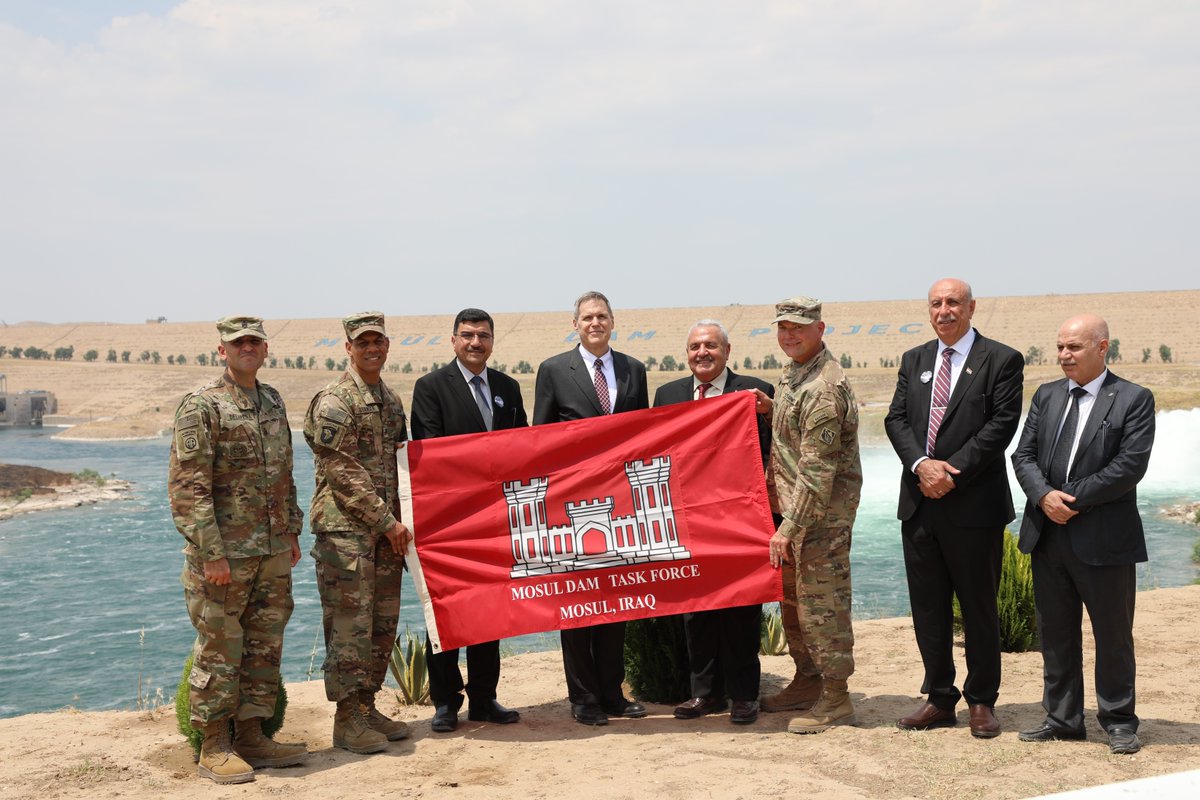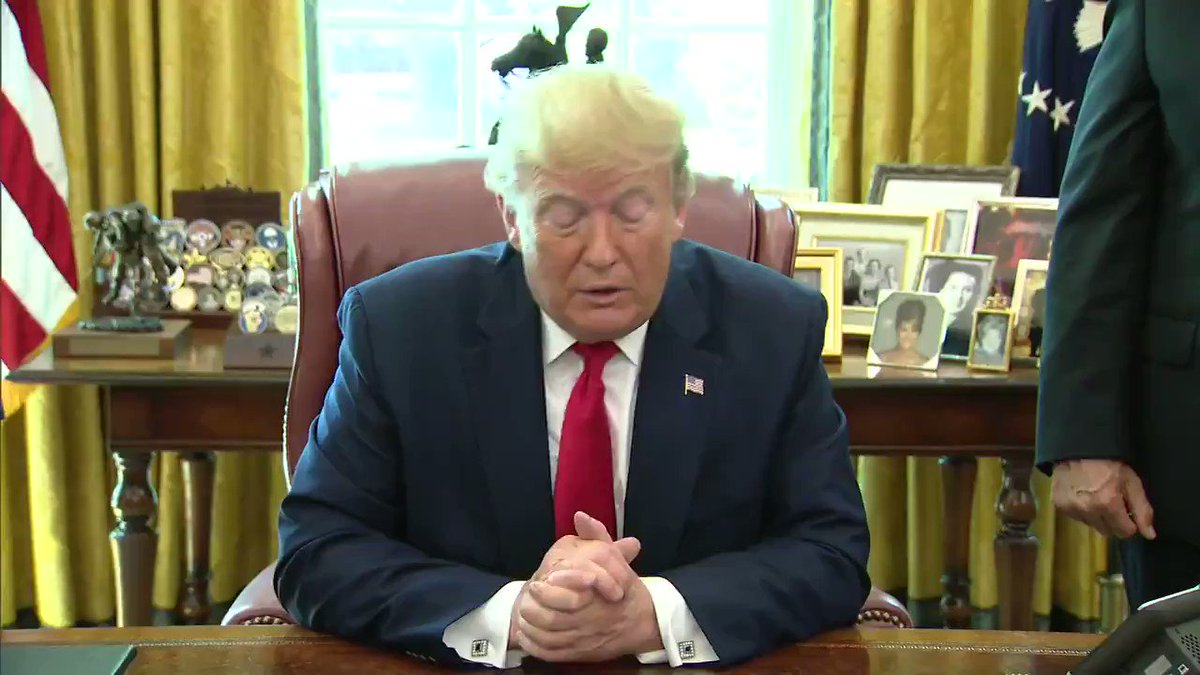- Iraq's largest dam is now safe. @USACEHQ partnered with Iraqi and Italian governments to provide essential water supply, irrigation, flood control, and hydropower for the people of Iraq. #Allied2Win Read more: https://go.usa.gov/xycD4
Wasn't this already news? Yes, it was (see the June 17th snapshot). Apparently, there's so little good to point out that the US Army is now Tweeting old news to fill the void.
They're not the only ones recycling. Tuesday, we caught REUTERS trying to pimp as new something that really wasn't.
Turning to Iraq, REUTERS insists today:
Iraqi Prime Minister Adel Abdul Mahdi sought on Monday to curb the powers of influential Iranian-backed Shi’ite Muslim militias, a politically risky move apparently aimed at placating the United States.
Did he? How did he do that?
Two weeks after the first of several unclaimed attacks on bases in Iraq hosting U.S. forces and on a site used by a U.S. energy firm, Abdul Mahdi issued a decree ordering militias to integrate more closely into the formal armed forces.
Is that what he did -- emphasis on "he"? Because not everyone agrees that this is an Adil creation.
#Iraq: PM @AdilAbdAlMahdi signed an executive order to restructure the PMFs (al-Hashd al-Sha’bi) & integrate them in the Iraqi Armed Forces. This is not a new initiative. It is an overdue implementation of the 2016 PMF Law. (1)
In other words, that particular dress has been on the floor for several years already.
And it's still not selling.
Jonathan Spyer (JERUSALEM POST via MIDDLE EAST FORUM) provides a walk through:
Firstly, it is worth remembering that this latest announcement is not without precedent. The first law making the militias part of the Iraqi security forces was passed in November 2016. From that time on, they have constituted a part of the state security apparatus. Formally, the militias report directly to, and are under the authority of, the prime minister.
In March 2018, then-prime minister Haider al-Abadi issued a decree formally integrating the militias into the security forces, regularizing their salaries and affording them rights similar to members of the Iraqi army and other services, under the control of the Ministry of Defense.
The latest decree, undertaken, it would appear, largely in response to US pressure and cajoling, resembles these earlier moves. What was their result?
With the welcome cover of official status, the militias predictably continued to act as the strong arm of Iran in Iraq. As a result of the blurring of the boundaries between the state army and the Shia militias, however, Iran's fighters gained welcome access to the resources available to the official security forces.
These included state-of-the-art US equipment – such as the nine M1A1 Abrams tanks that the militias used against (pro-US) Kurdish forces in the assault against Iraqi Kurdistan following the Kurdish bid for independence from Iraq in late 2017. The latter operation was planned by Soleimani.
The US has provided over $22 billion in aid to the Iraqi security forces since 2005. As the lines between the army and the militias blur, so the possibility of preventing this access will also fade. Only strong and direct action against the militias and their leaders could prevent this.
The militias are powerful players – politically, militarily and economically. Abdul Mahdi, meanwhile, is a weak figure with no real power base of his own. Iraq is not a country ruled by law. The prime minister, as a result, simply possesses no coercive mechanism for imposing his will on the Shia militias. He can order their dissolution, if he so wishes. The result would be the further enmeshing and fusing of the militias with the official bodies of the state – without the ceding by the latter of their own vital chain of command. This chain of command leads to Soleimani, and thence to the office of Iranian Supreme Leader Ali Khamenei.
Adil Abdul Mahdi is weak. And that's been obvious for some time -- probably for at least since he threatened to quit and no one rushed to object.
By the way, Abbas Kadhim notes in a piece of writing earlier this week that the Parliament confirmed a Minister of Defense and a Minister of the Interior on June 24th. My apologies, because I missed that until I read Kadhim's piece tonight.
We'll wrap up with this from the Committee to Protect Journalists:
Iraqi authorities should investigate the armed raid against the Baghdad offices of Al-Journal and 7C TV and determine if the perpetrators were acting on behalf of a member of parliament, the Committee to Protect Journalists said today [July 2nd].
On June 22, in central Baghdad, more than 20 armed men raided the offices of independent Iraqi newspaper Al-Journal and its affiliated broadcaster 7C TV, held the outlets' employees inside during the raid, destroyed computers, cameras, and other equipment, and seized documents, broadcasting equipment, and vehicles belonging to the outlets, according to a statement from Al-Journal, news reports, and local press freedom groups.
Al-Journal editor-in-chief Ahmed al-Saleh told the Press Freedom Advocacy Association in Iraq, a local independent advocacy organization, that the men identified themselves as private security forces employed by Hamad Yousef al-Musawi, an Iraqi member of parliament, whom they claimed had purchased the office building. Al-Saleh told the press freedom group that the news outlets had signed a lease on the building in 2016 and were not aware of any change in ownership.
An Al-Journal employee who spoke to CPJ on the condition of anonymity said that the raid came days after the newspaper published a story that detailed corruption allegations against al-Musawi.
The employees were allowed to leave four hours after the raid began, al-Saleh said.
"Sending armed guards to raid a newsroom, hold journalists, and seize their equipment over an alleged property dispute is a clear attempt at intimidation," said CPJ Middle East and North Africa representative Ignacio Miguel Delgado. "We condemn the raid on the offices of Al-Journal and 7C TV and call on Iraqi authorities to do their utmost to ensure journalists' safety."
The Al-Journal employee who spoke on condition of anonymity said that the men who raided the office searched for documents relating to the corruption case, but also inflicted needless damage to the outlets' property and to the journalists' personal cars.
In an interview given to Iraqi news website Nas News, al-Musawi denied any affiliation with the men who raided the offices. CPJ reached out to al-Musawi for comment through his personal website but did not immediately receive a response.
CPJ emailed Iraq's Interior Ministry for comment but did not immediately receive a response.
The following sites updated:


















 …
…





